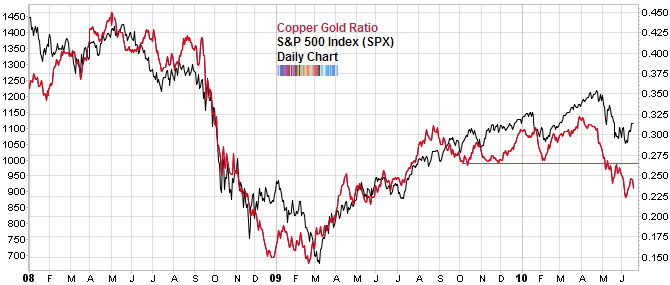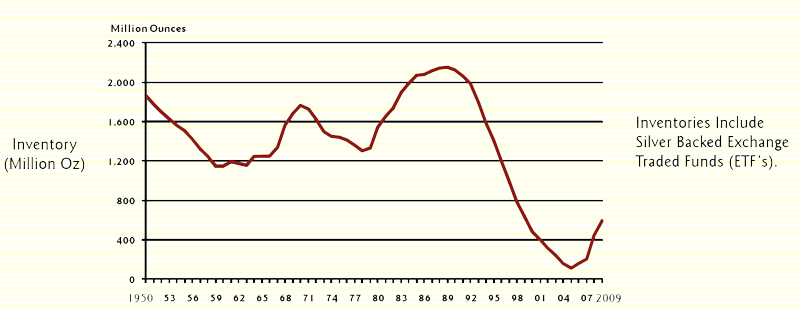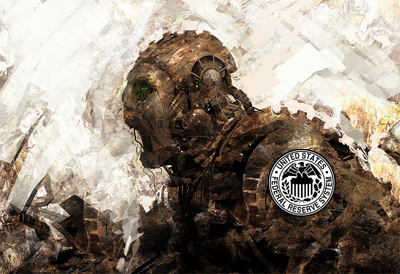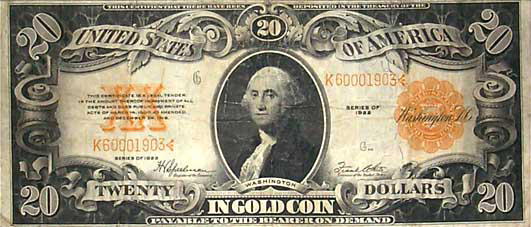Felipe Franco
 After decades of travelling throughout Latin America and years living there, I have developed a painful twinge every time I return to the U.S. and realize the loss of freedoms and rude behavior that is in store for me. It all comes flooding into my brain. What's the rule on shoes and searches at the airport? What will the cops do if my 7-year-old son is not in a government-approved booster seat in the rental car? What if a family member needs antibiotics or stitches? What are the things that will cause US residents to call the cops on me? What are the rules on car and health insurance that will get me in trouble? What kind of ticket will I get if I forget to turn on the headlights when there is a drizzle? Can the children stick their heads out of a sunroof or ride in the back of a pickup? No. Daddy might be arrested. Why? The cops are different here. The kids don't understand the oppressive environment. They don't understand the government worship and the angry woman screaming at Dad while he putts around on a motorcycle, "Where's your helmet!" Why do people want to control their neighbor's lives via the state in this country? We don't get it.
After decades of travelling throughout Latin America and years living there, I have developed a painful twinge every time I return to the U.S. and realize the loss of freedoms and rude behavior that is in store for me. It all comes flooding into my brain. What's the rule on shoes and searches at the airport? What will the cops do if my 7-year-old son is not in a government-approved booster seat in the rental car? What if a family member needs antibiotics or stitches? What are the things that will cause US residents to call the cops on me? What are the rules on car and health insurance that will get me in trouble? What kind of ticket will I get if I forget to turn on the headlights when there is a drizzle? Can the children stick their heads out of a sunroof or ride in the back of a pickup? No. Daddy might be arrested. Why? The cops are different here. The kids don't understand the oppressive environment. They don't understand the government worship and the angry woman screaming at Dad while he putts around on a motorcycle, "Where's your helmet!" Why do people want to control their neighbor's lives via the state in this country? We don't get it.
Then come the financial worries. What if someone is injured during the trip and we have to go to the unfriendly ridiculously expensive fascist hospitals. Is everyone's dental work caught up before the trip? What if the car breaks down? There aren't friendly roadside mechanics everywhere like there are in Latin America.
The pliant state-worshiping population seems like a crazy infestation to us in this "freest of all nations." We are used to societies made up of friendly entrepreneurs of all ages happily assisting the population. We are used to neighbors that tolerate each others' actions. In Latin America, there is no such thing as calling government goons to invade your neighbor's house when he has a birthday party lasting until 3 in the morning with a live band, clowns, a bouncy castle, fireworks, and lots of laughter. People expect the same allowances from their neighbors and they definitely don't trust the police to do anything, but cause problems. Why would you ruin your relationship with your neighbor by calling in government forces? Nobody would think of doing that.
The populace is openly disrespectful to the state in these countries. Journalism is real journalism. News articles blast state employees for their lavish lifestyles and thievery from the people. These aren't just editorials. They are regular articles filled with anti-government venom in the major newspapers. The newspapers don't spout pro-government rhetoric at the rate it is seen in the U.S. They continually point out government thievery and scandals and they hammer away repeatedly as they investigate and develop more on the stories. After all, newspapers are private businesses owned by entrepreneurs and they don't want their wealth stolen by the government either in these countries.
Latin American Governments Walk a Fine Line
These governments know that their existence is precarious. They don't own the presses for the world's reserve currency and many of them have experienced hyperinflation when they have ruined various issues of their own currency. They have a limit on the amount of wealth they can take from the people via inflation before the currency stops working. Most people don't pay any taxes. The entities that do are the major brick and mortar corporate businesses (e.g. Coca Cola, McDonalds, private airlines) who can't escape the government's predations and licensing schemes. Practically every other business is mobile or easily uprooted and replanted in another part of town. The tax base isn't there to support a large intrusive government. Most businesses will ask you when you make a purchase, "Con factura o sin factura?" This is universal language throughout Latin America meaning, "Do you want us to use the government serialized receipt and pay the taxes for this purchase?" The answer, of course, is always "sin factura" unless you need the receipt - like if you are travelling on business - in which case you may decide to pay the sales taxes or VAT via the government serialized receipt. Even then, they look at you in an odd way and ask if you wouldn't rather have a "recibo" than a "factura" so you don't have to pay the taxes. The "recibo" is an unofficial factura that you can use to claim expenses if you are travelling or purchasing something for business where you need a paper receipt to claim the expense. In the open air markets, where most of the business is done for everything from electronics to food, there is not even the option of paying taxes. For those people that really need receipts, they carry around a pad of pre-printed recibos and get a signature from the person selling the item or providing the service (like a plumber, electrician, or carpenter).
Most businesses don't even think of reporting any income or sales to the government. Since everyone has this attitude, the government stays poor and weak and can't afford to mess with the people very often. The Latin state's other option for government wealth - running the presses - has never worked for them. They wind up perpetually adding zeroes to their currency until the currency collapses. The governments have become aware that a hugely debased currency will ruin their ability to fund their operations. A currency collapse doesn't hurt the regular residents of these countries to the extent you might think. They have a lot of other options. Using Paraguay as an example - Paraguay uses as much or more foreign currency as they do their own (Guaranies). Business is routinely done in Brazilian Reales, Argentine Pesos, Chilean Pesos, Bolivian Bolivianos, Uruguayan Pesos, Euros, US Dollars, and Asian currencies. The collapse of one or more of these currencies wouldn't be a fatal blow to businesses that regularly operate in a free market of currencies. They don't rely on their country's own currency which has undergone massive inflation in the past and is currently trading at 4,765 Guaranies to 1 dollar. A 100,000 Guarani bill is the green-colored one and can be conveniently thought of as a 20-dollar bill by US visitors when making purchases. These countries could convert to barter if needed since practically everyone produces something (agricultural products if nothing else). These products are seen everywhere on street corners and in markets. It wouldn't be a huge leap for the guy who sells mangos to trade directly with the guy who sells homemade bread or the guy who sells homemade sandals if needed. People would not starve without a state currency since practically everyone is doing something productive and could trade the product of their labor.
US Attitudes vs. Latin American Attitudes
Here's an anecdote to illustrate the difference in US attitudes versus Latin American attitudes. In the early nineties, I was driving around a group of visiting Americans while living in Bolivia. I was informed by a cop that the highway we passed through that morning was under construction and closed going the other way and that we wouldn't be able to return for 24 hours until the closed lane was opened. I pulled out a 20 Boliviano note (4 dollars at the time) and paid the cop guarding the road. He opened the barrier for us and I easily drove the 5-hour trip home on the wrong side of the road. I thought my fellow Americans would be relieved that we got back to town that night, but they were incredulous asking, "What did you just do? Did you give that cop a bribe?"
"Well, yeah. I thought you guys wouldn't want to sit in the car for 24 hours getting bit by mosquitoes."
The comfort of being back in their beds was appreciated, but the fact that I negotiated an arrangement with a government official was something they thought to be outrageous. My explanation of the routine nature of such events was not acknowledged as if somehow I had gone down the slippery slope of government disrespect. I didn't understand their concern. Everyone was happy - even the cop.
Driving
Driving in Latin America is quick and efficient. It is natural and easy. Rules of the road develop intuitively and traffic is largely self-controlled by the drivers themselves. Despite what you may have heard - and this is based on years of driving experience - speeds are generally slower than they are in the U.S. People rarely race around at dangerous high speeds. They don't delay either. Major collisions are much rarer than in the U.S. I lived for 5 years in a city of one million people that had no traffic lights or stop signs at the time. Traffic flow was very natural. Traffic would flow one way through an intersection until there was a natural lull and then the cars from the other direction would nose in and dominate the intersection until the flow eased in the new direction. It is very interesting to observe and participate in - and quite safe - especially if you are not prone to road rage. Speaking of road rage, drivers don't get it in Latin America. They move quickly and efficiently and will drive around you or cut in front of you if you delay, but there is little or no animosity in their driving. They have places to go and they get there without worrying about their own egos or those of other drivers. It's a give and take attitude.
Medical
The doctors in Latin America don't give you the angry obligatory lecture like the traffic cop fascist doctors in the US who make demands of you and level threats and accusations at you if you don't comply with their "orders." Doctors in Latin America analyze the situation, run the appropriate tests (if you agree - they don't "order" you to take a battery of unnecessary tests to pad their pockets and to create a defense against frivolous malpractice suits), and give a cost estimate for the solution which you are free to decline or accept. If you decide to walk away, they are fine with that and don't insult you. They are very attentive and professional. They are trained in renowned universities and hospitals around the world (Europe, Japan, etc.) and have a much higher work ethic and professional demeanor than most U.S. doctors. They are not lacking in knowledge of complex medical techniques as people in the U.S. no doubt fear. We have undergone multiple medical procedures in Latin America.
On an occasion when we were living in Paraguay, my daughter broke her arm in a rather nasty way while practicing high jumps. A tendon had torn a bone fragment loose from the elbow. The bone chip was attached to the tendon and the tendon was detached from the elbow. We went to a private hospital. The prescribed procedure, after the X-ray and tests, was surgery creating an incision to drill a hole into the elbow, the insertion of a screw to attach the bone fragment to the elbow, the application of a cast, an overnight stay in the hospital (in a private room), and months of physical therapy after the cast came off and after a second surgery to remove the screw. We were provided a "presupuesto" (a cost estimate) of 3,000,000 Guaranies (about $600 at the time) for the two surgeries, private room, and multiple visits with a physical therapist over the coming months. We were told that we could decide if we wanted the work done in which case we could come back and pay at the front desk. We went home, thought it over, and came back and paid the money. Everything went splendidly and our daughter's arm has a full range of motion with no ill effects from the serious injury. I can only imagine the fiasco of unnecessary tests this would have turned into in the U.S. where there is no customer relationship - not to mention the likelihood of a call to the evil family services officials to investigate our family. What does a routine doctor visit cost at a private hospital in Paraguay? 20,000 Guaranies. When you punch that into your calculator, you will think you made a mistake. Government run hospitals in Latin America are crowded and bureaucratic. They argue endlessly with their clients about scheduling and documents. They are not worth dealing with. The private clinics and hospitals are fantastic. They are very aware of the business relationship with their customers. They want customers to have a good experience so that their reputation remains untarnished.
Dental
My family has undergone extensive dental work in Latin America including multiple root canals, crowns, and bridges. The same type of modern dental techniques and dental laboratories that exist in the U.S. are utilized. The level of patience and personal attention are much higher and the prices are much better. The dental clinics may be less impressive and ornate looking than a U.S. clinic, but who wants to pay more for a fancy office. The equipment is modern and the dentists are skilled. That's what matters.
As an example, eight months ago, I had 10 leaking fillings drilled out and replaced on 10 separate teeth. The original fillings had been done years before in the U.S. and were cosmetically ugly beside the fact that they were failing. It took 10 visits over a 6-week period to get all the work done. The end result was technically immaculate and was also a great visual improvement over the original fillings. The total cost: $250 ($25 per tooth). A U.S. dentist told me that it would have cost at least $300 per tooth to do that in the U.S. Root canals cost $120 and the crown including the mold and the custom laboratory work is another $100. If you haven't checked recently, a root canal and the custom mold and laboratory work to make the crown will cost you thousands of dollars in the U.S. I'm sure that more and more businesses will arise that arrange medical and dental tours to foreign countries for those patients who lack the language ability and geographic knowledge needed to get the work done on their own. Once you've experienced private foreign medical and dental work, you will never look the same at expensive, rude, and inattentive U.S. doctors and dentists - and you can get a foreign vacation thrown in for the cost of getting the work done in the U.S.
Other Benefits
There are many other benefits that come from living in a society where the government can't effectively control economic and personal behavior. Here are some of them.
Healthier diet and lifestyle: One of the first things you notice when you go out into the world in a Latin American country is that almost everybody is physically fit. Children and adults are not obese. They are not malnourished either. Why? They eat better and have a healthier lifestyle. They eat meats, vegetables, and fruits that they buy fresh and prepare simply. They eat instinctively based on what their bodies need - not based on a government "food pyramid" or FDA labels about salt and cholesterol. They move around more. They walk a lot. The children are not turned into Ritalin zombies. The people sleep and work based on what makes sense in their environment. They don't let the government program their lives.
Ease of hiring: Most households have domestic employees because they are so affordable. Even persons who don't have a lot of money often employ someone who makes even less than they do. The average household employs a housekeeper and a gardener and often a young man or woman to run errands. It is easy to start a business out of your house and have an employee to help you. A wage is agreed to voluntarily by both parties - typically $50-150 a month in many countries. The household is helping this person who willingly agrees to work in the household to raise his or her standard of living. The employee is usually given meals as well. This is a very kind arrangement which allows people to enter the workforce and better themselves rather than live in poverty - which would be the result if the minimum wage laws were followed. Also, specialty workers like carpenters, electricians, plumbers, and welders are affordable, easy to hire, and have a tremendous work ethic. Employment is near full employment in Latin American countries where employers and employees negotiate directly for wages and services.
Closer families: Social security may exist on the books in these countries, but is not relied on since less wealth is stolen from society to support such programs. Multiple generations regularly meet together, live together, eat together, celebrate together, and take care of each other. Aging relatives are welcomed into the homes of younger family members. It is very common to see an old man or woman out walking with their adult child by their side. That is the norm. The lonely detached aging person warehoused away from their family is much rarer. The state-sponsored divorce industrial complex does not exist in these countries either. Government interventions in family life have broken down many of the natural affections between family members in the U.S.
Cars: There are more car choices to fit your needs. All kinds of interesting imported cars are seen throughout Latin America. Many small efficient cars and innovative trucks and specialty vehicles can be purchased that are the current state-of-the art for automakers. These cars are never seen in the U.S. because the foreign company has not paid the millions of dollars to undergo U.S. crash tests and DOT certification. I have often impressed US car aficionados by sending them photos of new modern cars that are never seen in the U.S. They are imported cheaply via unofficial means (bypassing import duties) into Latin American countries. You can choose from many interesting models made all over the world. Many persons don't get license plates for their cars. Many that do get plates only pay once when they buy the car and never choose to pay again to re-register.
Not lawsuit happy: People in these countries like to settle things directly between themselves. There is not the predatory civil lawsuit environment that exists in the U.S. This keeps down the cost of services, medicines, etc. and reduces the fear that your property will be taken by the courts and given to someone else. Once again, people don't want the government involved in their affairs.
More choice of medications and herbal remedies: Pharmacists, doctors, and herbal specialists readily help customers choose the correct remedies and advise appropriately on negative effects, dosage, etc. Drug addicts are much rarer than in the U.S. Substances tend to be used carefully and in moderation. People can also do their own research and then go into a pharmacy and buy whatever they want without a prescription. Generic and name brand medications are imported from all over the world. Surprisingly, U.S.-made medications are often cheaper because they are sold for export from the U.S. and don't have all the medical liability costs built into the price tag as is the case for the same medications sold for the U.S. market.
Fine dining: If you are into eating out regularly, the prices are fantastic compared to U.S. restaurants. A $10 price for a high-end meal with drinks at a classy restaurant is not uncommon in third-world countries in Latin America. This is, once again, due to the fact that businesses ignore the state's wishes and hire employees and operate businesses with total disregard for the government's nonsensical regulatory mandates. They make money by serving and providing for the needs and happiness of their fellow man. The food is great. The stereotype about unhealthy cooking practices is just that. I get sick less often in Latin America than I do in the U.S. The waiters also treat customers with utmost respect. They are extremely attentive and do not intrude and blare over the diners as happens with waiters in the U.S. who try to dominate the conversation at the table. I have a hard time stomaching arrogant, loud, overbearing, and intrusive U.S. waiters after living for years in Latin America. Many U.S. companies now hold seminars in foreign countries, like Mexico, just for the fine personal treatment that is provided by the waiters in resorts and restaurants as compared to that received in the U.S. Employees like waiters are actually expected to perform their duties in a polite respectful manner since they don't have government agencies to force the employers to keep them when they behave in an inappropriate manner.
Government Work is not Honorable
The residents of these countries don't worship the police or the military as their saviors or heroes. The state tries to foster hero worship through the erection of statues and the naming of holidays and streets after military figures, but the people are strongly aware that those who enter the police or military professions are doing so to enrich themselves at the expense of others. The people see the thievery happening up close and personal as cops directly take their money to let them out of state-manufactured infractions. It is nice to see directly the dirty parasitic nature of the state rather than through the filter of a thieving taxation system where the parasites aren't seen taking money directly from the public. Children see their parents paying the cops directly and they become aware at an early age that anyone entering the government is pursuing a career of thievery.
As it used to be in the U.S. in the days of my parents, the most prestigious profession in Latin America is that of engineer. The engineering profession is the symbol of industry and productivity in Latin America and represents the opposite of the filthy state in people's minds. The title "inginiero" immediately commands respect. The professions representing industry and productivity are the most revered and the careers involving politics are the most despised by the people.
Ranking the Freedom in Latin American Countries
It is fairly easy to rank the countries that have more and less freedom in Latin America. As a general rule, if you want the most for your money and the most freedom, go to countries that are not "first world" or "second world" and go to countries that are farther from the U.S. The official level of "socialism" in the government of the country is less important than you think. Don't spend a lot of time studying their laws. All Latin American countries have very intrusive laws and confiscatory taxation schemes. The laws are more draconian than they are in the U.S., but they are outright ignored in most of the countries. The economies in first world / second world countries where the government has more wealth and more power (e.g. Brazil, Argentina, Chile, Colombia) are more formal and more controlled by the government which results in less freedom. Also, countries that are closer to the U.S. have already been inundated to a greater extent by U.S. visitors and have elevated their prices somewhat. They are also more affected by U.S. Government pressures and U.S. Government money aimed at "cracking down" on informal businesses. However, even the closer, bigger countries (e.g. Mexico) have a higher level of actual day-to-day freedom than the U.S. and lower prices than the U.S. for medical, dental, etc. Even the countries I mentioned with wealthier governments have more day-to-day freedom than the U.S., so they are not bad choices if you are enamored with one of those countries for other reasons. The "dangers" you read about in Latin American countries are severely overstated or simply invented to promote statist intervention in activities that the government does not like. We feel safer on the streets of Latin America than we do on the streets of big cities in the U.S.
Contempt for the State
Persons in Latin America have a strong healthy disrespect for government. They openly display their contempt for public officials as they jeer and mock convoys of officials driving through their midst. They consider things that they work for to be their property and not the property of a state parasite. They purposely keep their things out of reach of the government. They don't cheer government as the savior of humanity. They strongly resist state attempts to register their assets, income, and banking activities. The state stays weak because the residents don't willingly sign themselves up to be robbed. The state employees cannot try too hard to overcome this or they will be deposed as has happened many times in the past. The Latin state keeps hobbling along weakly and is tolerated grudgingly by the populace if it stays out of the way.
June 18, 2010
Felipe Franco [send him email] is an American homeschooling father and frequent business traveler to Latin America.
www.lewrockwell.com
 In all of the descriptions of perilous situations that I have studied, arising during adventures on the high seas or in the high mountains, or during armed conflict, a single mistake rarely proves fatal. More often than not, death comes as a result of a sequence of bad choices which reinforce each other. These choices may not appear bad at the time - but they certainly do in retrospect! The end result is a situation in which no further steps can be taken that would not be either harmful or futile. This is the essence of checkmate: no moves left. At that point, none of the previous moves can be undone. Nor do they even exist, really: they have gone off to an imaginary universe populated by the regretful ghosts of those who didn't make it.
In all of the descriptions of perilous situations that I have studied, arising during adventures on the high seas or in the high mountains, or during armed conflict, a single mistake rarely proves fatal. More often than not, death comes as a result of a sequence of bad choices which reinforce each other. These choices may not appear bad at the time - but they certainly do in retrospect! The end result is a situation in which no further steps can be taken that would not be either harmful or futile. This is the essence of checkmate: no moves left. At that point, none of the previous moves can be undone. Nor do they even exist, really: they have gone off to an imaginary universe populated by the regretful ghosts of those who didn't make it. Earlier in the year we looked at an indicator that had a 95% correlation with the S&P 500 index. While at first it may seem bizarre, the indicator was simply the
Earlier in the year we looked at an indicator that had a 95% correlation with the S&P 500 index. While at first it may seem bizarre, the indicator was simply the 
 There is one question that I would really like an answer to. Who died and made BP king of the Gulf of Mexico? In recent weeks, BP has almost seemed more interested in keeping the American people away from the oil spill than in actually cleaning it up. Journalists are being pushed around and denied access, disaster workers are being intimidated and abused and now BP has even go so far as to hire an army of private mercenaries to enforce their will along the Gulf coast. Are we suddenly living in occupied Iraq? How in the world did a foreign oil company get the right to start pointing guns at the American people? The last time I checked, BP did not own the Gulf of Mexico and did not have the right to tell the American people where they can and cannot go. The truth is that BP could have avoided all of this by running an open, honest and transparent operation from the start. They could have welcomed help from all sources, they could have tried to be open with the media, and they could have tried to be fair with the volunteers and rescue workers. But instead BP has been conducting this whole thing as if we are living in a totalitarian dictatorship and they are the dictators.
There is one question that I would really like an answer to. Who died and made BP king of the Gulf of Mexico? In recent weeks, BP has almost seemed more interested in keeping the American people away from the oil spill than in actually cleaning it up. Journalists are being pushed around and denied access, disaster workers are being intimidated and abused and now BP has even go so far as to hire an army of private mercenaries to enforce their will along the Gulf coast. Are we suddenly living in occupied Iraq? How in the world did a foreign oil company get the right to start pointing guns at the American people? The last time I checked, BP did not own the Gulf of Mexico and did not have the right to tell the American people where they can and cannot go. The truth is that BP could have avoided all of this by running an open, honest and transparent operation from the start. They could have welcomed help from all sources, they could have tried to be open with the media, and they could have tried to be fair with the volunteers and rescue workers. But instead BP has been conducting this whole thing as if we are living in a totalitarian dictatorship and they are the dictators. Sophisticated precious metals investors are well-aware of the
Sophisticated precious metals investors are well-aware of the 
 The first misconception that most people have is that the Federal Reserve Bank is a branch of the US government. IT IS NOT. THE FEDERAL RESERVE BANK IS A PRIVATE COMPANY. Most people believe it is as American as the Constitution. THE FACT IS THE CONSTITUTION FORBIDS IT'S EXISTENCE. Article 1, Section 8 of the Constitution states that Congress shall have the power to create money and regulate the value thereof, NOT A BUNCH OF INTERNATIONAL BANKERS! Today the FED controls and profits by printing WORTHLESS PAPER, called money, through the Treasury, regulating its value, AND THE BIGGEST OUTRAGE OF ALL, COLLECTING INTEREST ON IT! (THE SO-CALLED NATIONAL DEBT). The FED began with approximately 300 people or banks that became owners, stockholders purchasing stock at $100 per share - the stock is not publicly traded) in the Federal Reserve Banking System. They make up an international banking cartel of wealth beyond comparison. The FED banking system collects billions of dollars in interest annually and distributes the profits to its shareholders. The Congress illegally gave the FED the right to print money through the Treasury at no interest to the FED.
The first misconception that most people have is that the Federal Reserve Bank is a branch of the US government. IT IS NOT. THE FEDERAL RESERVE BANK IS A PRIVATE COMPANY. Most people believe it is as American as the Constitution. THE FACT IS THE CONSTITUTION FORBIDS IT'S EXISTENCE. Article 1, Section 8 of the Constitution states that Congress shall have the power to create money and regulate the value thereof, NOT A BUNCH OF INTERNATIONAL BANKERS! Today the FED controls and profits by printing WORTHLESS PAPER, called money, through the Treasury, regulating its value, AND THE BIGGEST OUTRAGE OF ALL, COLLECTING INTEREST ON IT! (THE SO-CALLED NATIONAL DEBT). The FED began with approximately 300 people or banks that became owners, stockholders purchasing stock at $100 per share - the stock is not publicly traded) in the Federal Reserve Banking System. They make up an international banking cartel of wealth beyond comparison. The FED banking system collects billions of dollars in interest annually and distributes the profits to its shareholders. The Congress illegally gave the FED the right to print money through the Treasury at no interest to the FED.
 After decades of travelling throughout Latin America and years living there, I have developed a painful twinge every time I return to the U.S. and realize the loss of freedoms and rude behavior that is in store for me. It all comes flooding into my brain. What's the rule on shoes and searches at the airport? What will the cops do if my 7-year-old son is not in a government-approved booster seat in the rental car? What if a family member needs antibiotics or stitches? What are the things that will cause US residents to call the cops on me? What are the rules on car and health insurance that will get me in trouble? What kind of ticket will I get if I forget to turn on the headlights when there is a drizzle? Can the children stick their heads out of a sunroof or ride in the back of a pickup? No. Daddy might be arrested. Why? The cops are different here. The kids don't understand the oppressive environment. They don't understand the government worship and the angry woman screaming at Dad while he putts around on a motorcycle, "Where's your helmet!" Why do people want to control their neighbor's lives via the state in this country? We don't get it.
After decades of travelling throughout Latin America and years living there, I have developed a painful twinge every time I return to the U.S. and realize the loss of freedoms and rude behavior that is in store for me. It all comes flooding into my brain. What's the rule on shoes and searches at the airport? What will the cops do if my 7-year-old son is not in a government-approved booster seat in the rental car? What if a family member needs antibiotics or stitches? What are the things that will cause US residents to call the cops on me? What are the rules on car and health insurance that will get me in trouble? What kind of ticket will I get if I forget to turn on the headlights when there is a drizzle? Can the children stick their heads out of a sunroof or ride in the back of a pickup? No. Daddy might be arrested. Why? The cops are different here. The kids don't understand the oppressive environment. They don't understand the government worship and the angry woman screaming at Dad while he putts around on a motorcycle, "Where's your helmet!" Why do people want to control their neighbor's lives via the state in this country? We don't get it.